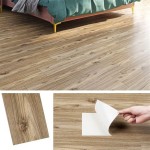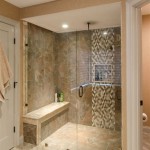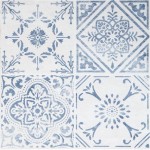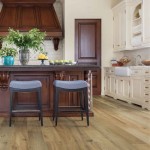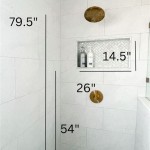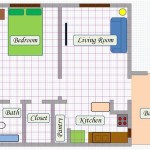Pros And Cons Of Tile Flooring
When considering new flooring, tiles are often a popular choice. They are generally waterproof and moisture-resistant, making them ideal for rooms such as bathrooms and kitchens. Additionally, tiles are durable and resistant to wear and tear, which may make them a good option for high-traffic areas. However, it is important to be aware of the potential disadvantages of tile flooring before making a decision.
Advantages of Tile Flooring
Durability: Tile flooring is highly durable and can withstand heavy foot traffic and wear and tear. It is also resistant to scratches, dents, and stains, making it a suitable choice for busy households and commercial spaces.
Waterproof and Moisture-Resistant: Tiles are generally waterproof and moisture-resistant, which makes them an excellent option for areas prone to moisture, such as bathrooms and kitchens. It is less likely to be damaged by spills or leaks, and it can help to prevent mold and mildew growth.
Variety of Styles and Designs: Tile flooring comes in a vast selection of styles, colors, and patterns, allowing for a wide range of design possibilities. From classic ceramic to modern porcelain and natural stone tiles, there is a tile option to complement any décor.
Easy to Clean and Maintain: Tiles are relatively easy to clean and maintain. Regular sweeping or mopping can remove dirt and debris. Tiles are also resistant to stains and chemicals, making them suitable for use with cleaning solutions.
Hygienic: Tile flooring is considered hygienic as it does not harbor dust, dirt, or allergens. Its smooth surface makes it easy to clean and prevents the accumulation of bacteria and other microorganisms.
Disadvantages of Tile Flooring
Cold and Hard Underfoot: Tile flooring can feel cold and hard underfoot, especially during winter. It may not be as comfortable to stand or walk on for extended periods compared to softer flooring options like carpet.
Grout Maintenance: The grout between tiles requires regular cleaning and maintenance to prevent discoloration and staining. It can be prone to mold and mildew growth if not properly sealed and cleaned.
Breakability: While tiles are generally durable, they can be brittle and prone to breakage if subjected to heavy impact or if they are not properly installed. Cracked or broken tiles may need to be replaced.
Installation Costs: Tile flooring can be more expensive to install compared to some other flooring options. The cost of materials, labor, and any necessary subflooring preparation can add up.
Slippery When Wet: Some tile surfaces, especially polished or glazed tiles, can become slippery when wet. This can be a safety hazard, particularly in areas like bathrooms and showers.

The Pros Cons Of Ceramic Tile Flooring Ocotillo Services

Tile Flooring Pros And Cons Housing News

Pros And Cons Of Tile Flooring Kuhn Gallery

Exploring The Pros And Cons Spc Flooring Vs Tiles Wholesaler

Learn All About The Pros Cons Of Tiled Flooring Archipal

Bathroom Tiles The Pros And Cons Of 19 Different Types

Wood Look Tile Flooring Pros Cons

Advantages Disadvantages Of Ceramic Tiles

Flooring Materials Advantages And Disadvantages Icork Floor

Pros And Cons Of Tile Flooring In Your Kitchen Is Better Than Hardwood Youtube

